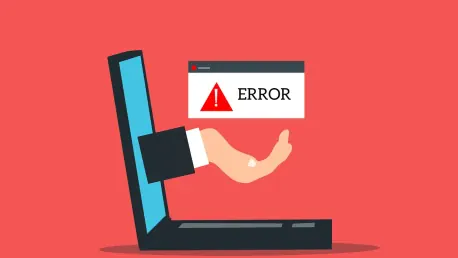The cybersecurity industry watched closely as CrowdStrike grappled with the devastating consequences of a failed software update in July that crippled millions of computers worldwide. Despite reporting a third-quarter revenue increase of 29 percent year-over-year, amounting to $1.01 billion, the company still faced a significant $17 million loss. This revenue growth has not been enough to soothe investor concerns, especially given the projected Q4 revenue of $1.03 billion, which may still bear the scars of the incident. The aftermath of the July mishap has introduced a wave of skepticism and caution among customers and investors alike, clouding the future of the cybersecurity leader.
Customer Hesitancy and Prolonged Sales Cycles
Following the botched update, customers have shown a marked reticence to renew their subscriptions, and new purchases have slowed dramatically. This hesitancy to commit to CrowdStrike’s services has translated into longer sales cycles and heightened scrutiny during decision-making processes. To combat this, CrowdStrike introduced “customer commitment packages” (CCPs), offering incentives such as flexible payment terms and subscription extensions designed to retain customer trust and loyalty. Despite these measures, CFO Burt Podbere issued a warning that these initiatives’ influence on the company’s fourth-quarter results might not be significant. This uncertainty has put a spotlight on CrowdStrike’s ability to quickly rebuild its credibility and demonstrate the reliability of its cybersecurity solutions.
This period of customer uncertainty is compounded by the tangible legal challenges CrowdStrike faces. Notably, Delta Airlines has stood out with a lawsuit seeking $500 million in damages for revenues lost during the software failure that resulted in the cancellation of approximately 7,000 flights. However, Podbere noted that despite the immediate fallout, some new deals post-incident have been slightly larger, hinting at a degree of customer retention. This suggests that while the failure has strained relations, CrowdStrike retains the ability to secure business, albeit with increased effort and likely concessions. The delicate balance between addressing customer concerns and legal challenges will be crucial as the company navigates this turbulent time.
Leadership’s Optimism and Investor Skepticism
Despite these numerous hurdles, CEO George Kurtz has remained optimistic, emphasizing the crucial role CrowdStrike plays in defending against increasingly sophisticated cyber threats. Kurtz highlighted the positive feedback from major customers, asserting that a majority have remained loyal to the company, though some small managed services providers have chosen to leave. This loyalty from key players indicates confidence in the broader cybersecurity community about CrowdStrike’s capabilities, even amidst the setbacks endured.
However, investors have not been swayed by leadership’s assurances alone. The company’s share price experienced a decline from approximately $364.50 to $343.80 in after-hours trading following the revenue announcements and the discussion of the fallout from the software mishap. This investor reaction suggests that while there is a foundation of optimism within the company’s leadership, skepticism persists among shareholders who are acutely aware of the immediate financial impacts and the potential long-term repercussions.
Navigating these challenging waters involves providing tangible assurances to all stakeholders. CrowdStrike has shown a commitment to transparency and customer satisfaction through the adaptation of payment and subscription models to current customer needs. This strategy aims not just at damage control but also at proving their superior technological edge in the crowded cybersecurity market. As the company tackles the downstream effects of the July software failure, the balance between regaining investor confidence and customer trust will be key. Each step taken by leadership will be scrutinized for its efficacy in mending the trust that was shaken by the incident.
The Road Ahead
The cybersecurity industry is paying close attention as CrowdStrike deals with the fallout from a disastrous software update in July that disabled millions of computers globally. Although CrowdStrike reported a third-quarter revenue increase of 29 percent year-over-year, reaching $1.01 billion, the company still experienced a notable $17 million loss. While this revenue growth appears strong, it has not been sufficient to allay investor worries. Concerns persist, especially with the projected fourth-quarter revenue of $1.03 billion, which may continue to reflect the repercussions of the July incident. This mishap has led to heightened skepticism and caution among customers and investors, casting a shadow over the future of the cybersecurity giant. As a result, CrowdStrike has been grappling with restoring trust and confidence, crucial elements for sustaining its market leadership. The incident underscores the volatility and challenges inherent in the cybersecurity sector, where one misstep can have far-reaching consequences.









